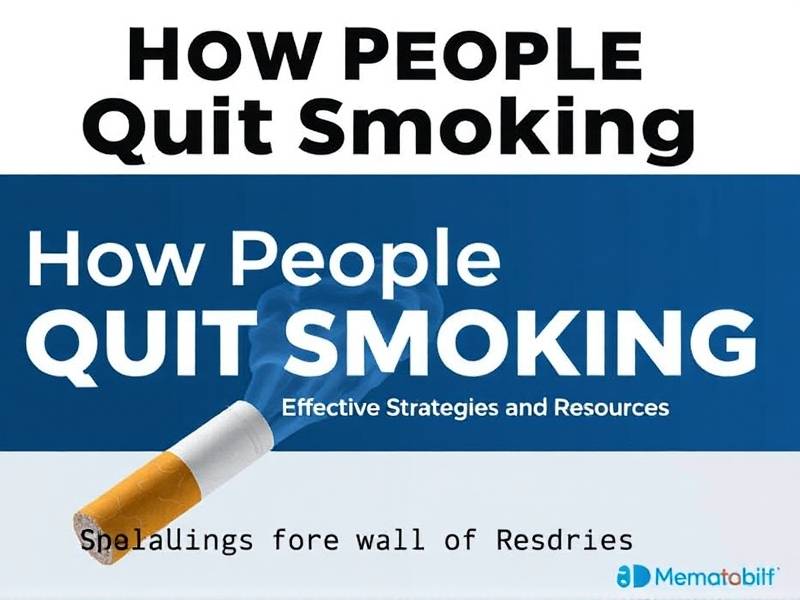How People Quit Smoking: Effective Strategies and Resources
Introduction
The journey to quit smoking is one that many embark on, armed with determination but often facing challenges along the way. Smoking cessation is not just a personal endeavor; it's a commitment to better health and well-being. This article explores effective strategies and resources available to those looking to quit smoking, providing insights into the path to a smoke-free life.
Understanding the Challenges
Before diving into strategies, it's essential to understand the challenges that come with quitting smoking. Nicotine addiction is powerful, and withdrawal symptoms can be uncomfortable. Recognizing these hurdles is the first step towards overcoming them.
Nicotine Dependency
Nicotine is a highly addictive substance found in tobacco products. Its effects are quick, leading to immediate feelings of relaxation and pleasure. However, this feeling fades rapidly, prompting the user to seek another cigarette.

Withdrawal Symptoms
Common withdrawal symptoms include cravings, irritability, anxiety, depression, and headaches. These symptoms can make quitting challenging but are manageable with the right approach.
Effective Strategies for Quitting Smoking
Behavior Change Techniques
- Identify Triggers: Recognize situations or emotions that trigger your urge to smoke and plan how you'll cope with them.
- Reward Yourself: Set goals for each milestone in your quit journey and reward yourself accordingly.
- Stay Active: Regular exercise can help reduce withdrawal symptoms and improve your mood.
Medications and Supplements
- Nicotine Replacement Therapy (NRT): Products like patches, gum, lozenges, or inhalers provide controlled doses of nicotine without the harmful effects of tobacco smoke.
- Prescription Medications: Some doctors prescribe medications like bupropion (Zyban) or varenicline (Chantix) to help manage nicotine withdrawal.
Support Systems
- Seek Professional Help: A healthcare provider can offer personalized advice and support.
- Join Support Groups: Connecting with others who are also trying to quit can be incredibly motivating.
- Use Apps and Online Resources: There are numerous apps available that provide tips, track progress, and offer motivational support.
Resources for Smokers Seeking Help
Government Websites
- Centers for Disease Control and Prevention (CDC): Offers extensive resources on smoking cessation.
- National Cancer Institute (NCI): Provides information on smoking-related health issues and quitting strategies.
Non-Profit Organizations
- American Lung Association: Offers programs like Freedom from Smoking® that guide individuals through the quitting process.
- American Cancer Society: Provides support through its QuitNow® program.
Mobile Apps
- Smokefree.gov App: Offers tips on how to quit smoking through text messages or calls from trained coaches.
- QuitGuide by Smokefree.gov: A comprehensive guide filled with resources for quitting smoking.
Conclusion
Quitting smoking is a significant step towards improving your health and quality of life. By understanding the challenges you may face, utilizing effective strategies such as behavior change techniques or medications, seeking professional help when needed, and leveraging available resources like government websites or support groups, you can increase your chances of success in this life-changing endeavor.

Remember that every individual's journey is unique; what works for one person may not work for another. Stay determined and persistent in your efforts to quit smoking—a smoke-free life awaits!
